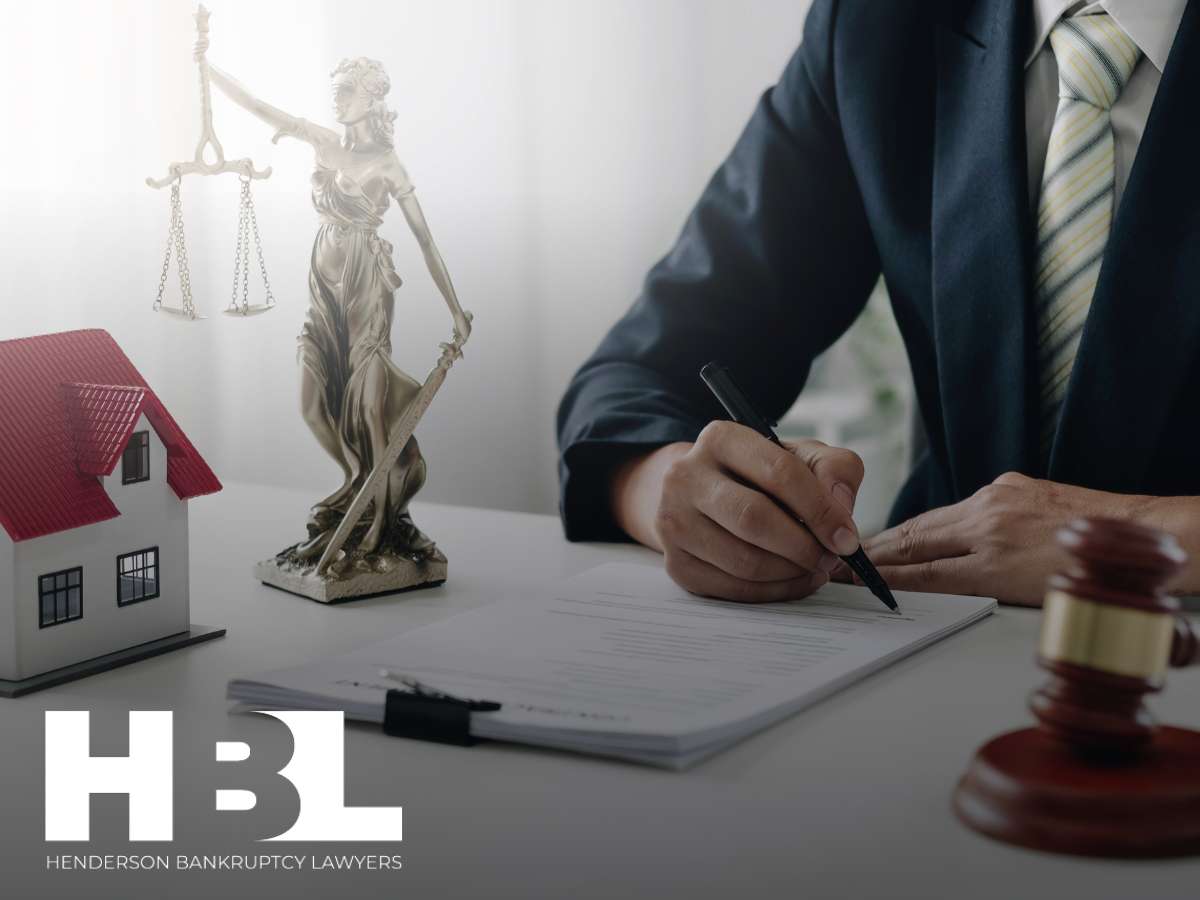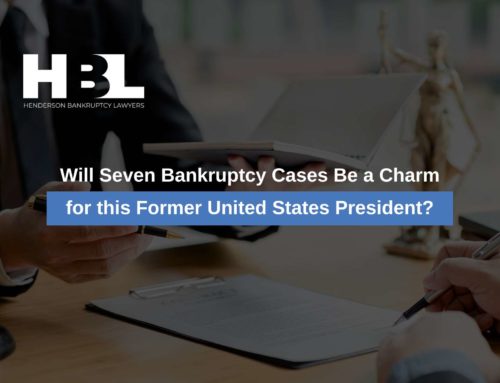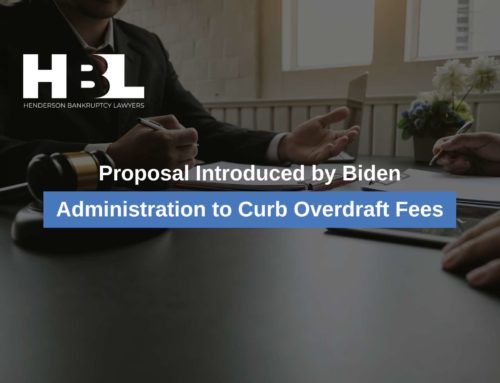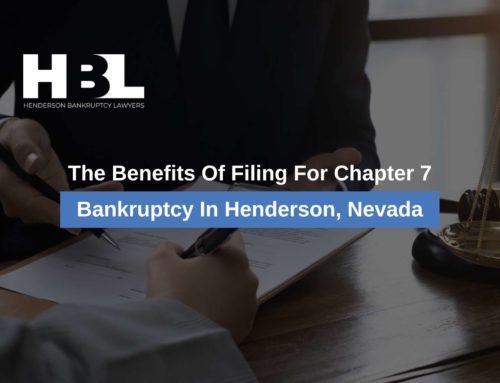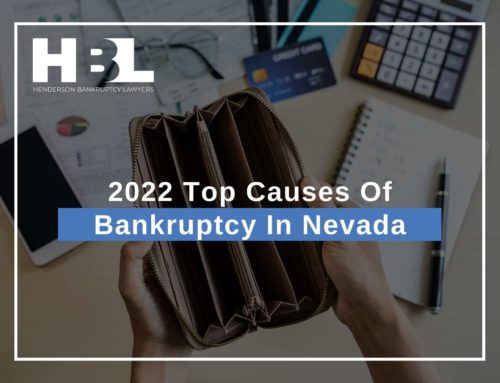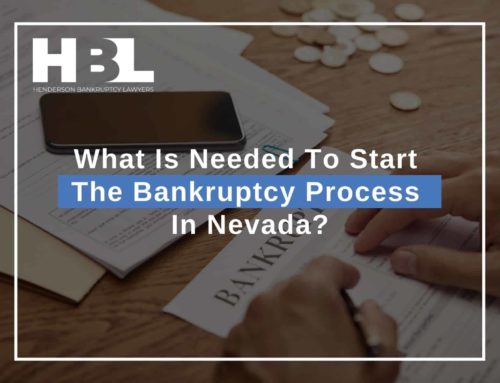Most of us don’t have enough spare cash in our bank accounts to purchase a home in full. That means the majority of people will need to take out a home mortgage to buy a house, condo, etc. Buying a home is expensive, but it is often a sound financial decision. Paying money each month into home equity rather than a landlord’s pocket can be worth the more expensive maintenance, taxes, and more. But qualifying for a home mortgage may seem like an impossibility if you are struggling with debt, considering bankruptcy, or have recently filed for bankruptcy. Read on to learn more about buying a home with a loan in Nevada after discharging debt in bankruptcy. If you have additional questions, call our firm for your free consultation at 702-370-0155.
Chapter 7 & Chapter 13
One of the biggest factors that go into how long someone must wait to buy a home after filing for bankruptcy is which chapter they filed. The two most common forms of consumer bankruptcy are Chapter 7 and Chapter 13, and they are different in many aspects. Chapter 7 is filed more frequently than Chapter 13. In a fairly short time frame- usually, 3 to 6 months- Chapter 7 bankruptcy allows debtors to discharge unsecured nonpriority debts. For most who file Chapter 7, this means clearly debts that largely stem from credit cards, medical expenses, and personal loans. Even some taxes can be cleared by a Chapter 7 bankruptcy. But not everyone is eligible to file for Chapter 7 bankruptcy. A debtor must either fall under Nevada’s median income level for their household size or pass the Means Test to qualify.
Chapter 13 bankruptcy is much more of an undertaking than Chapter 7. It is a payment plan that lasts either 3 or 5 years, depending on whether the debtor falls below or above the state’s median income level. The debts will be sorted into four categories and paid off in order: bankruptcy-related legal fees, secured debts, priority debts, and unsecured nonpriority debts. The first three categories must be paid off in full for a Chapter 13 bankruptcy to be approved and discharged. However, unsecured nonpriority debts will only be paid off to the extent that the debtor’s disposable monthly income allows.
Conventional Home Loans After Bankruptcy
Several home buyers prefer to keep the federal government out of their finances, and therefore turn to conventional loans when buying a home. Each financial institution can set its own standards for approving home loans after an applicant has filed for bankruptcy, but they tend to be similar. The waiting period for a conventional home loan as opposed to an FHA or VA loan could be longer for someone who has recently discharged debt in bankruptcy. After a Chapter 7 bankruptcy, most private financial institutions won’t approve an applicant for a home loan until 4 years after their date of filing. This waiting period is 2 years from the date of the last payment for Chapter 13 bankruptcy debtors. A lender is free to make exceptions based on its own policies. They may also extend the waiting period if the debtor has declared bankruptcy more than once. Under these circumstances, the lender may extend the waiting period to 5 years.
FHA Loans After Bankruptcy
FHA loans allow home buyers to purchase homes with less money down than other types of mortgages. Home buyers who meet certain qualifications can put as little as 3.5% down on a home with an FHA loan. This could make buying a home much easier than loans that require a more substantial down payment. But not everyone qualifies for the benefit of purchasing a home with only 3.5% down. Filing Chapter 7 bankruptcy will disqualify debtors from FHA loan approval for 2 years. Someone who discharges their debt in Chapter 13 will need to wait at least 1 year from the date of their last plan payment before qualifying for an FHA home loan.
VA Loans After Bankruptcy
VA loans offer benefits for veterans in addition to those offered by FHA loans. Veterans looking to purchase a home with a VA loan don’t need a certain credit score or a down payment. However, there aren’t special exemptions here for veterans that file for bankruptcy and apply for a home mortgage. A Chapter 7 bankruptcy debtor will need to wait 2 years before buying a home with a VA loan. A veteran who files for Chapter 13 bankruptcy will need to wait 1 year from their final payment to qualify for a VA loan.
Exceptions To Bankruptcy Waiting Periods
Just like most rules, lenders will make some exceptions to the 2-year waiting period for Chapter 7 debtors and 1 year waiting period for Chapter 13 debtors. As mentioned above, the waiting period to qualify for a home loan can be extended when the debtor has filed at least one time previously. Instead of 1-2 years, a multiple bankruptcy filer may need to wait at least 5 years before being approved for a home loan. However, lenders will also decrease the waiting period for a bankruptcy debtor if they are under extenuating financial circumstances. The death of a spouse may cause a lender to reduce the waiting period to 1 year after bankruptcy. So can emergencies like natural disasters and home fires. Someone going through severely difficult financial times should consult with a bankruptcy attorney about how this may affect future home loan approvals.
Boosting Credit After Bankruptcy
Even if a bankruptcy debtor has waited the applicable waiting period to apply for a home loan, they may not meet other requirements, such as a minimum credit score. Maintaining a positive credit history after bankruptcy discharge is another important factor in approval for a home mortgage after bankruptcy. In general, this means making payments on time and in full. One strategy someone can use after bankruptcy is opting in for credit reporting whenever given the chance. Some landlords may offer tenants the chance to contribute to their credit history through their rent payments. Paying off more expensive purchases, such as a cell phone, can be done with financing and also contribute to credit history. A post-bankruptcy debtor could even opt in for credit reporting on streaming services for a monthly boost (or reduction) in their credit score.
Because a debtor will lose all of their credit cards when they declare bankruptcy, they may want to apply for new ones after their case has been discharged. They should be careful to review all offers for credit cards received after a bankruptcy discharge, as they may come with unfavorable hidden terms. Financing a new vehicle could also be a way to improve post-bankruptcy credit and release the burden of a vehicle in poor condition. Auto lenders aren’t required to continue positive credit reporting if a debtor keeps a financed vehicle in their bankruptcy.
Your Nevada Bankruptcy Team to Achieve Financial Goals
Bankruptcy may be about avoiding short-term consequences like a repossession or wage garnishment, but also about long-term goals like affording to purchase a home. It can be difficult to determine how long a bankruptcy will impact your ability to obtain mortgage approval without specific details. At Henderson Bankruptcy Lawyers, our Nevada bankruptcy team offers affordable rates and free phone consultations. Contact us to learn more about your options today or call us at 702-370-0155.
Henderson Bankruptcy Attorneys
1489 W. Warm Springs Rd., Ste. 110
Henderson, NV 89014
Phone: (702) 899-3328
Email: info@mylasvegaslawyers.com

